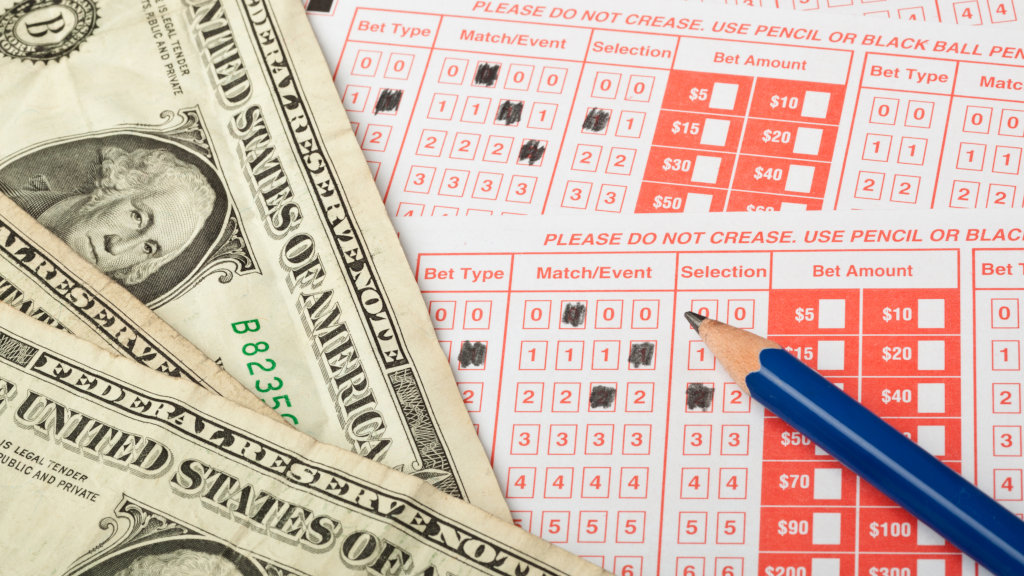Reading Time: 5 minutes

Research shows that roughly 2.5 million Americans (1% of the population) meet the criteria for having a gambling addiction. Around 5 to 8 million Americans show symptoms of having a mild to moderate gambling problem.
Are you concerned that your gambling has gotten out of hand? Read on to learn more about gambling addiction and 10 facts about this disorder.
What Is a Gambling Addiction?
A 2023 study from the American Gaming Association (AGA) shows that nearly half of all U.S. adults (49%) participate in some kind of gambling every year. In addition, about 41% of adults visit a casino, or a similar gambling facility, each year.
A gambling addiction can develop when a person’s gambling begins to take over their personal relationships, family life, or career. Some of the signs that you or someone you love might be suffering from a gambling addiction include:
- Thinking about gambling to an obsessive degree
- Placing higher and higher bets to feel a rush
- Gambling to escape from negative thoughts or events in your life
- Feeling restless or irritable when you can’t gamble
- An inability to stop gambling, despite attempts
- Gambling despite negative results or consequences
A gambling addiction doesn’t just cause psychological stress. It can also lead to financial distress. Left untreated, it could also cause problems at work and in your family.
Facts About Gambling Addiction
Let’s take a look at 10 facts you might not know about gambling addiction.
1. It’s More Than Financial
The top gambling addiction fact that you should know is that gambling is NOT just a financial problem. Some problem gamblers do not have financial issues even though they may lose money gambling.
Gambling is an emotional issue where a person feels the need to gamble to alleviate stress or because they feel a certain type of euphoria when they gamble. Gambling is an obsession that can take over your life if you let it go too far. This can lead to the loss of relationships, jobs, and, yes, finances, but the issue behind compulsive gambling is not financial; it’s emotional.
2. It’s a Major Industry

Gambling addiction affects men much more often than women.
Gambling is a billion-dollar industry in the U.S. In 2024, commercial gambling revenue reached a new record of nearly $72 billion. That’s 6.5% higher than in 2023, when revenue reached $66.5 billion.
Las Vegas alone brings in more than $11 billion a year from gambling.
It is common for people to blame certain types of gambling methods, such as lotteries, casinos, and racetracks, for causing compulsive gambling, but gambling problems are not caused by gambling being easily attainable. They are caused by a person’s inability to control their gambling habits.
3. It’s A Slippery Slope
It has been estimated that around 85% of the U.S. population has gambled in their lifetime. Gambling can be done in various ways, so it’s relatively easy for people to find an avenue that works for them.
4. It Can Co-Occur with Mental Health Disorders
People who are addicted to gambling are significantly more likely to have mental health disorders. A 2022 study by the University of Maryland found that 96% of people with a gambling disorder also have a co-occurring mental health condition, like depression or anxiety. Moreover, 60% of this population also suffers from at least three separate psychiatric conditions. These can include:
- Personality disorders (more than 60%)
- Mood disorders (nearly 50%)
- Anxiety disorders (more than 40%)
5. It Can Lead to Other Addictions
Compulsive gamblers may have addictive personalities that lead to substance use disorder (SUD). They may use gambling to replace or complement the high that they’re used to getting from drugs or alcohol. The University of Maryland study also revealed that up to 63% of people who engage in problematic gambling also have SUD.
6. It Affects More Men
Research suggests that men may be more likely to develop a gambling problem than women. This may depend on the gambling platform used. For instance, one study found that 98% of people who are addicted to online gambling are male.
7. It Affects Everyone Around You
It can be easy to feel like gambling is a personal problem. However, you aren’t the only one who will feel the effects if it gets out of control. You may find that your relationships begin to suffer as the stress starts to mount and your financial difficulties begin to snowball.
8. It’s More Than Money
You may get into gambling to make a little side money or supplement your regular income. Yet, as you become emotionally attached to the rush of winning or the thrill of taking a risk, you could find that it’s no longer about the payout. You might start to bet higher and higher amounts to recapture the feeling you get when you win.
9. It’s Often Hidden
Gambling addictions are relatively easy for someone to hide, at least at first. That’s because there aren’t as many physical signs to notice until the stress and anxiety of the disorder begin to take hold. This is why it’s so important to recognize and understand the signals that someone might be addicted to gambling, such as stealing, lying about their behavior, or betting higher and higher amounts.
10. It’s Not About Weakness
The last gambling addiction fact to remember is that compulsive gambling does not mean that you are a weak person. Many people who have become problem gamblers are very successful and are seen by others as strong and intelligent people.
Get Help for Gambling Addiction Today
If you have concluded that you have a problem with gambling, there are options out there for you to consider. There are many rehabilitation centers out there for you to choose from, and there are numerous gambling hotlines you can call to speak to an anonymous person regarding your gambling habits. Some addiction treatment centers may also treat co-occurring gambling addictions.
Having support from outside sources and being able to talk to other people who understand your addiction has been proven to help people overcome their addictions. When you’re ready to take that next step, seek help today.
